NYC congestion pricing ripped as ‘$15 ransom’ during first MTA hearing on contentious tolling plan: ‘Substantial burden’

New Yorkers against the planned $15 congestion fee to enter the busiest parts of Manhattan came out swinging in the MTA’s first-of-its-kind public hearing on the contentious issue Thursday night.
Opponents of the toll for drivers traveling south of 60th Street argued the plan would be another crippling cost for working-class drivers, particularly in the outer boroughs or other parts of the tri-state area that lack viable public transportation.
They also pointed out the MTA already loses millions of dollars yearly to commuters who evade paying subway or bus fares while listing numerous other problems for the beleaguered transit agency.
Meanwhile, advocates of the new program said the additional funds would go toward much-needed improvements, slash pollution in Midtown and lead to faster response times for emergency vehicles and safer streets.
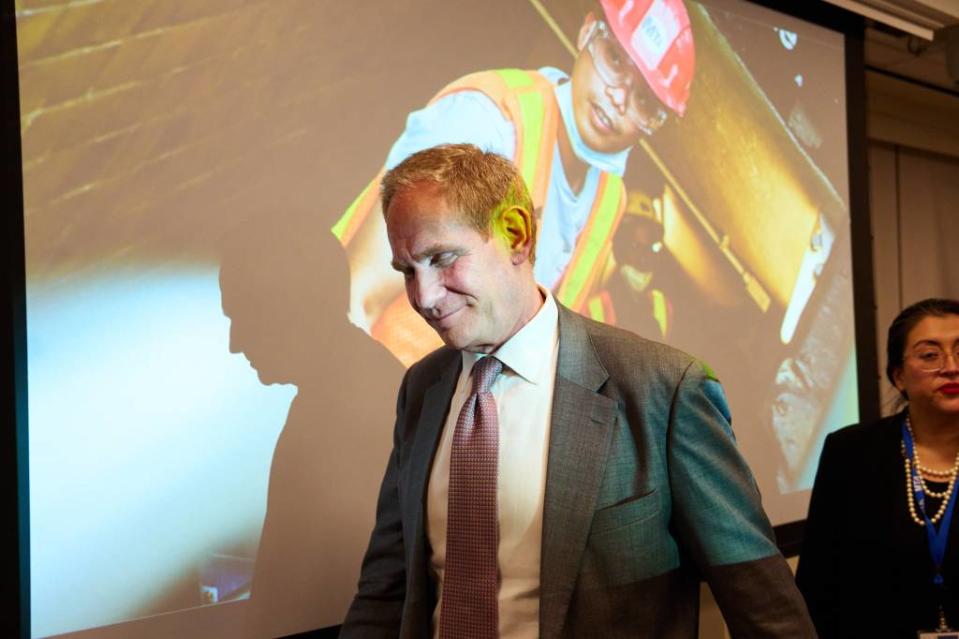
Nearly 100 speakers fiercely debated the topic during the hours-long hearing, including one driver who lives in the congestion zone and called the fee a “$15 ransom.”
“For many of us who are struggling to make ends meet, an additional daily fee represents a substantial burden that will force sacrifices in other areas such as food,” said downtown Manhattan resident and business owner Linda Nicholas, who needs to carry equipment when she goes out for her work.
“Now you’re telling me I have to pay a $15 ransom to be able to get back to my apartment because I have not been lucky with my address,” said Nicholas, who parks in a garage once she gets home.
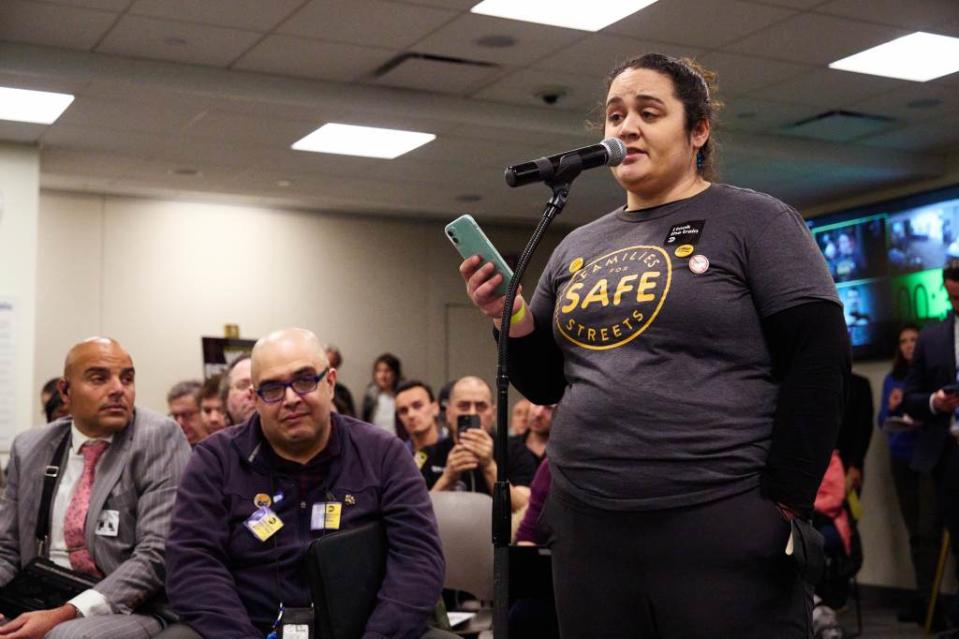
“Now you’re gonna make me pay, putting all your debt on my back and the backs of downtown New Yorkers who are struggling to commute, most who are trying to get by,” she continued, stating that the extra fee would “put me over the edge.”
Another woman who lives in the congestion zone, but travels over the George Washington Bridge for her job in Rockland County, called the plan “horrifying.”
“I hate driving to work. I hate it. But there is no public transportation of any kind that will get me to my job on time on a daily basis,” said Jane Riback, 68. “I would love to take a train but one does not exist.”
A radiation oncologist, Fumiko Chino, said her cancer patients at Memorial Sloan Kettering should receive an exemption to congestion pricing.
“My patients get daily radiation for four to six weeks and are often too sick to use public transportation,” Chino said. “They may be unsteady or nauseous or immunocompromised. Taking the subway can put them at a real level of harm.
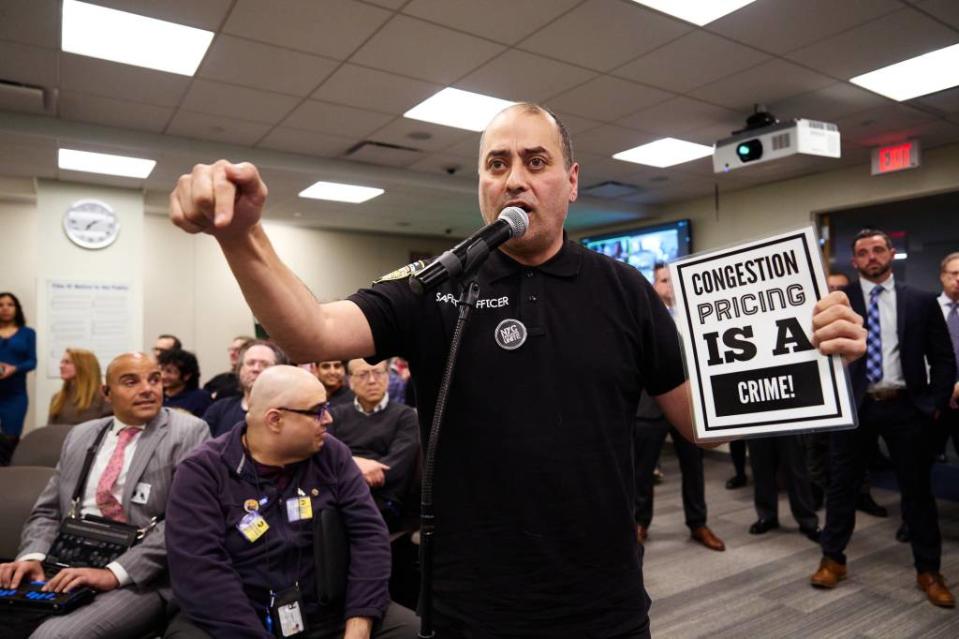
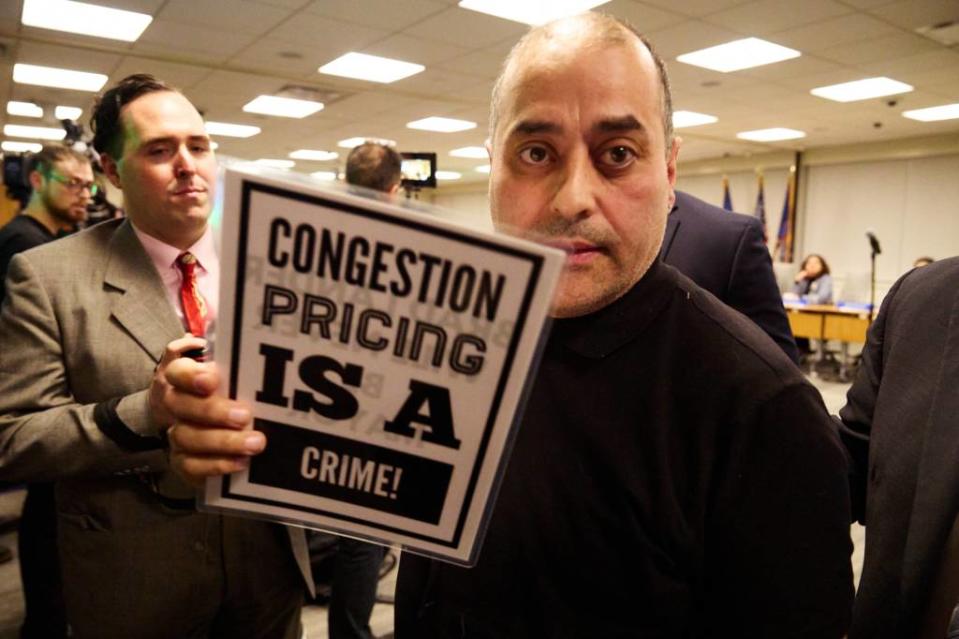
“This congestion fee is essentially a cancer tax on people who need medical care to survive.”
US Rep. Nicole Malliotakis (R-NY), who represents Staten Island, called congestion pricing a “slap in the face” to outer borough residents who could face worse air quality from cars that detour to other parts of the city and also don’t have robust public transportation.
If the plan goes forward, she urged MTA officials to provide Staten Island drivers with a credit — because they already pay a toll to cross into Manhattan on the Verrazzano Bridge.
“If you guys want people to ride the subway system, you got to make it safe,” she also said.
But congestion pricing backers painted a different picture, stating that most commuters use public transportation to get into Manhattan daily.
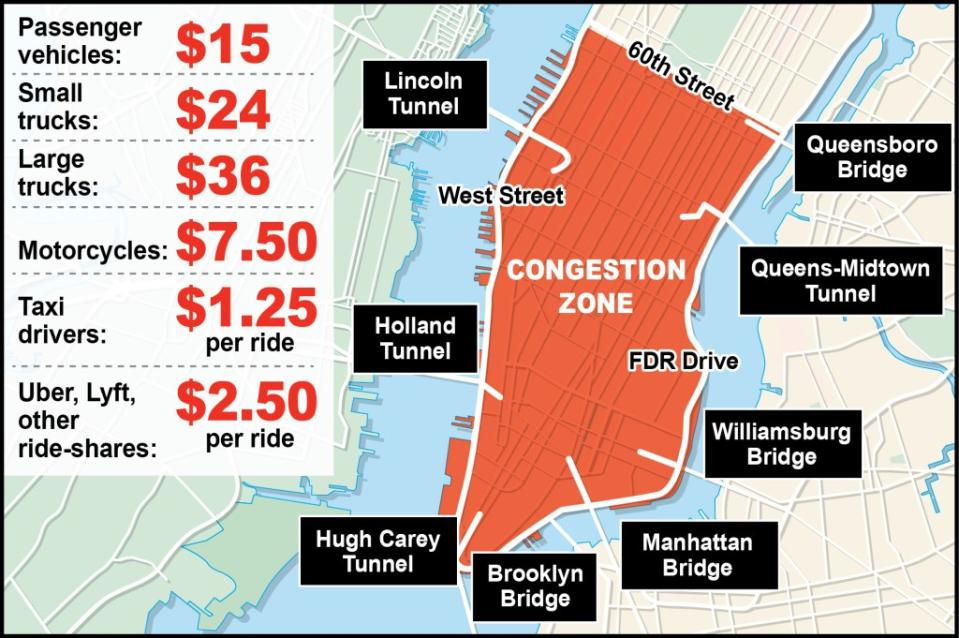
“It’s not at all unreasonable to ask those with the privilege of owning their own private vehicle to pay for the negative impact they inflict on New Yorkers,” said Kara Gurl, planning and advocacy manager at the Permanent Citizens Advisory Committee to the MTA.
Murray Hill resident Barak Friedman called the number of cars in his neighborhood “out of control.” He said he hopes pollution is cut down because his daughter has asthma.
“We desperately need congestion pricing. We try to cross the crosswalk, it’s full of cars,” he said. “There’s people in wheelchairs and strollers navigating in between these cars. It’s out of control. Our buses can’t even move. The firemen don’t even get to the fires on time. Our ambulances can’t get to the sick people. It’s really upsetting.”
The once-a-day fee for passenger car drivers would be assessed on weekdays between 5 a.m. and 9 p.m. and weekends between 9 a.m. and 9 p.m. Outside of peak hours, the toll would be $3.75.
While drivers on the FDR Drive, the West Side Highway and the Battery Park underpass are exempt from the tolling program, they will be charged if they exit onto a street in the congestion zone.
The MTA also rolled out this week an exemption tailored for people with disabilities who travel into the Central Business District. Those seeking the carve-out must provide their private vehicle information and qualifying disability information.
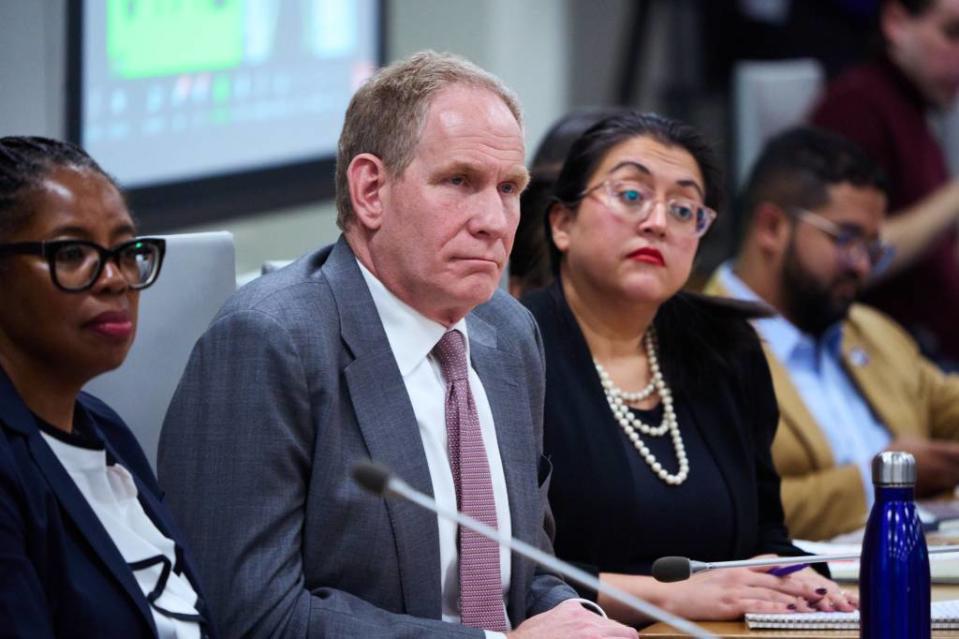
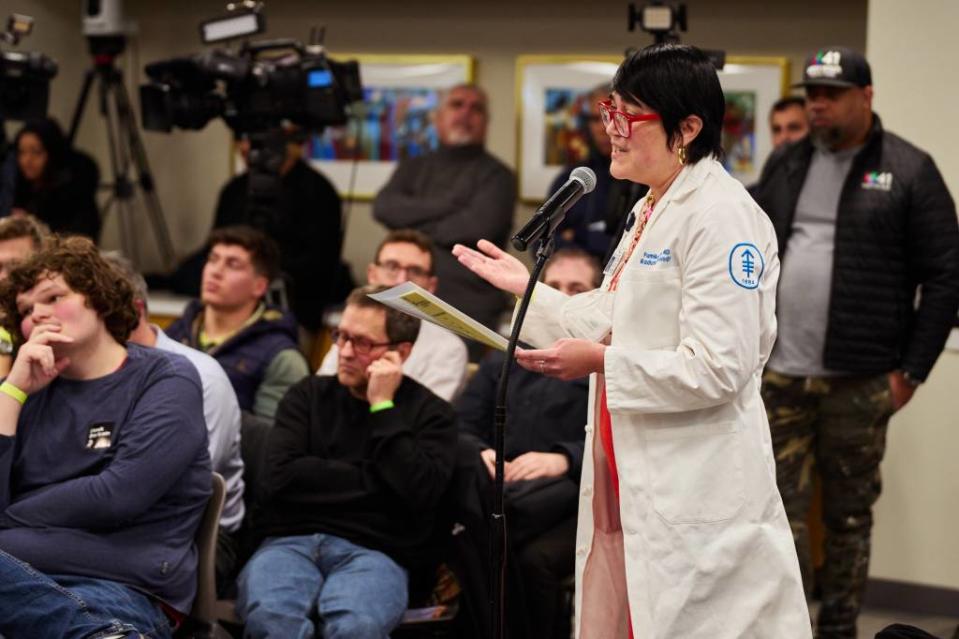
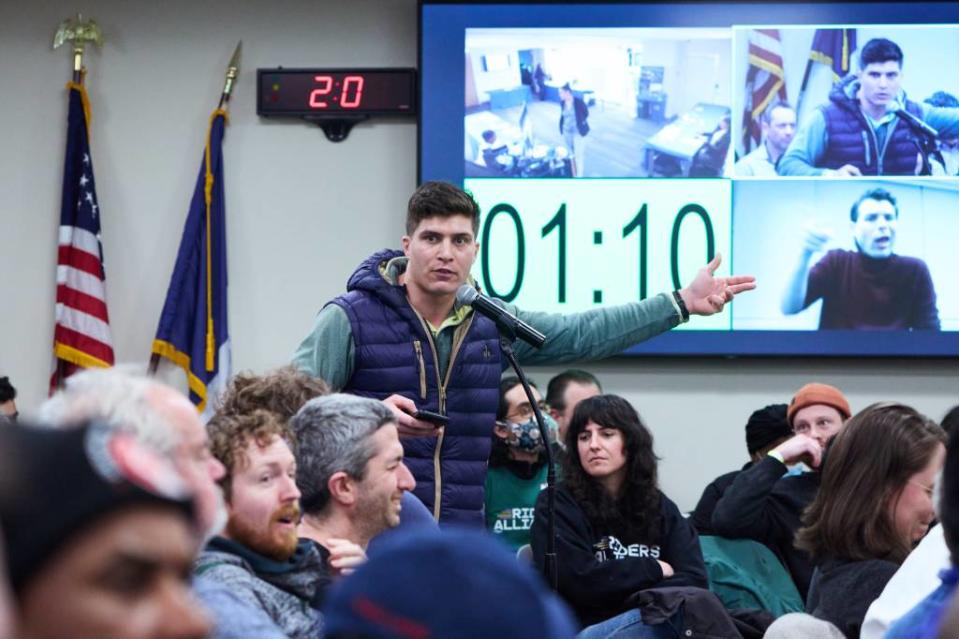
MTA officials anticipate the agency would rake in about $1 billion annually from the congestion fee that would go toward various improvements for trains and buses, including a Second Avenue Subway extension, new computerized signals and station upgrades.
Before the hearing got underway, a couple dozen demonstrators outside MTA headquarters chanted in support of the congestion pricing plan as NYC Transit president Richard Davey made his case for the plan to reporters.
“If you like accessible stations, if you like reliable signal systems like we have on the 7 and the L (lines), then you have to like congestion pricing because the dollars we’re going to raise will be directly invested in public transit for the 5½ million New Yorkers who use public transit,” Davey said.
There is no official start date, but an MTA lawyer hinted the rollout could start as soon as mid-June as the MTA faces numerous legal actions against congestion pricing.
After Thursday night’s public comment session, another hearing will be held Friday morning, with the final two forums scheduled for Monday morning and Monday night.
The public can also send written comments on the plan to the MTA through March 11.

